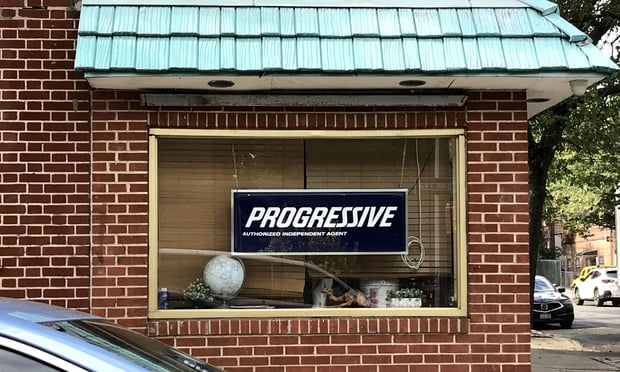Foreign insurers are "using scare tactics" to maintain the status quo and discourage Congress from passing tighter rules over the ceding of premiums offshore by the U.S. affiliates of foreign carriers, a leading CEO told a congressional hearing last week.
William Berkley–chair and CEO of the W.R. Berkley Corp. and head of the domestic insurers' coalition pushing for new legislation–said foreign carriers are "attempting to confuse the real issues by claiming the bill will adversely affect pricing and capacity for catastrophe reinsurance in coastal states and the rest of the U.S. insurance market."
However, he added, "the facts are undeniable and the opponent's claims are simply false. The bill will have little or no impact on the availability or cost of catastrophic coverage in coastal areas or elsewhere."
Opponents and proponents weighed in during a hearing before the Subcommittee on Select Revenue Measures of the House Ways and Means Committee, examining two proposals designed to tax the ceding of premiums offshore.
One of the provisions, proposed by the Obama administration, is projected by the Joint Tax Committee to raise $2.5 billion in additional revenues over 10 years.
Another proposal, by Rep. Richard Neal, D-Mass., chair of the subcommittee, is projected to raise $17 billion over 10 years.
Speaking in opposition to the Neal bill, or any effort to restrict current practice, was Sean Shaw, insurance commissioner advocate for the state of Florida.
"I'm concerned about American consumers," Mr. Shaw testified. "Consumers can expect to pay an additional $11 billion to $13 billion every year because of this tax increase. That would be a bad idea, even in the best of times. And that is a terrible idea now, in the midst of a serious recession and a disastrous oil spill."
However, in response to questions from several members of the committee about the impact of the legislation, John Degnan, vice chair and chief operating officer of the Chubb Corp., discounted charges that the Neal bill, if enacted, would dry up reinsurance capacity in the United States and therefore raise insurance rates to consumers.
He said that if foreign reinsurers cut their supply of reinsurance to the U.S. market, other sources of reinsurance capacity would quickly take their place.
He added that it would not be that simple for insurers to hike premiums if the restrictions recommended by the Obama administration or the tax proposed by Rep. Neal became law. "This industry is highly regulated by the states, and it is not that easy to raise rates," he said.
In questioning Mr. Shaw, Rep. Neal noted that the projections of the cost of his legislation was contained in a report prepared by an outside consulting firm (the Brattle Group of Boston) that was commissioned by the Coalition for Competitive Insurance Rates, a group formed by offshore insurers who would be affected by the legislation.
Stephen Shay, deputy assistant secretary for international tax affairs, questioned the accuracy of the cost projections contained in the Brattle Group report. In response to an inquiry from a member of the committee, he said, "you would have to have a lot of assumptions to get to that conclusion."
Mr. Berkley questioned how raising taxes by an estimated $1.9 billion by closing the loophole–as projected by the Joint Tax Committee–would cost consumers an additional $11 billion to $13 billion per year to maintain their current insurance coverage.
"I don't think the offshore insurers have their math right," he said.
Mr. Berkley cited a study of the Neal bill by the LECG Group that found foreign insurers actually supply only a small amount of the total direct catastrophic coverage for coastal and other states.
In seeking industry comment, Rep. Neal pointed out in his opening remarks that he had invited seven CEOs of foreign reinsurers and two reinsurance trade groups to testify, but they had "politely declined."
Treasury's Mr. Shay said the Obama administration would not oppose the Neal bill, although it supports its own proposal.
Under the Obama proposal, a deduction would be denied for reinsurance premiums paid to related foreign reinsurers if the related entity was not subject to U.S. tax with respect to those premiums, and if the premiums (less ceding commissions) exceed 50 percent of the total direct insurance premiums received by the U.S. company and its U.S. affiliates for a line of business.
Alternatively, under the administration proposal, a foreign corporation could elect to treat those premiums and the associated investment income as effectively connected U.S. income.
Want to continue reading?
Become a Free PropertyCasualty360 Digital Reader
Your access to unlimited PropertyCasualty360 content isn’t changing.
Once you are an ALM digital member, you’ll receive:
- Breaking insurance news and analysis, on-site and via our newsletters and custom alerts
- Weekly Insurance Speak podcast featuring exclusive interviews with industry leaders
- Educational webcasts, white papers, and ebooks from industry thought leaders
- Critical converage of the employee benefits and financial advisory markets on our other ALM sites, BenefitsPRO and ThinkAdvisor
Already have an account? Sign In Now
© 2024 ALM Global, LLC, All Rights Reserved. Request academic re-use from www.copyright.com. All other uses, submit a request to [email protected]. For more information visit Asset & Logo Licensing.








